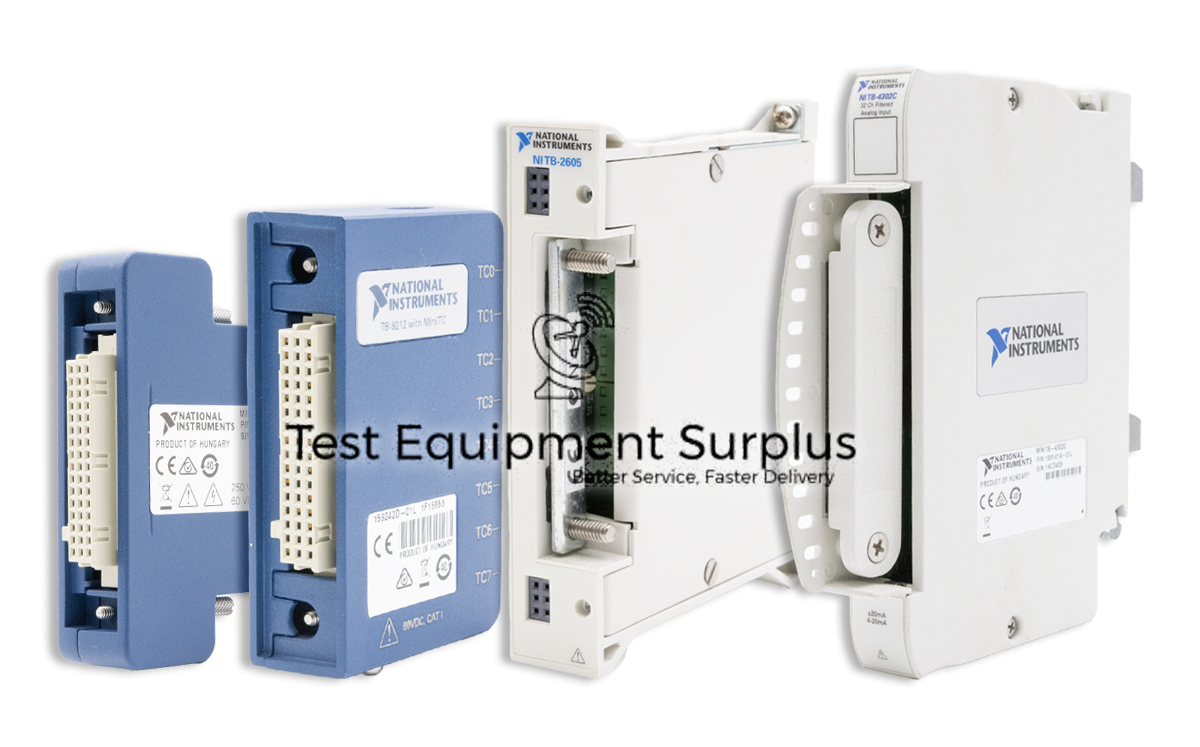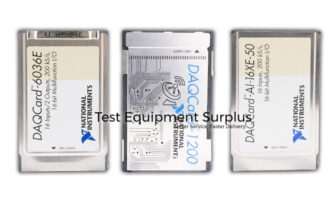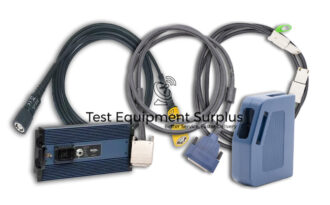Description
The NI TB-4357 Terminal Block is a specialized accessory designed to complement the NI PXIe-4357, a 20-channel RTD Module, by providing essential connectivity and signal routing capabilities. With a part number of TB-4357, this Terminal Block is engineered to handle channel-to-earth isolation up to 60 VDC and ensures that the maximum trace resistance remains below 70 mΩ for precise measurements.
Integrated ground lugs are a critical feature of the TB-4357, offering a secure termination point for cable shields, which is crucial for maintaining signal integrity. It is built for indoor environments, with an operational temperature threshold not to exceed 55 °C, ensuring reliable performance under specified conditions.
The TB-4357 includes a spring-loaded latching mechanism for easy and secure deployment with just a push, and can be further stabilized using mounting screws. An integrated strain-relief bar is also provided to manage and protect the signal cables, facilitating a clean and organized setup. This Terminal Block enables efficient signal routing from field-mounted RTDs directly to the PXIe-4357 module, making it an indispensable tool for professionals working with temperature measurement systems.
| Specification | Detail |
|---|---|
| Part Number | TB-4357 |
| Type | Terminal Block |
| Designed for | NI PXIe-4357 (20-channel RTD Module) |
| Channel-to-Earth Isolation | Up to 60 VDC |
| Maximum Trace Resistance | Below 70 mΩ |
| Ground Lugs | Integrated, for cable shield termination |
| Usage Environment | Indoor, ambient temperature not exceeding 55 °C |
| Latching Mechanism | Spring-loaded, push deployment |
| Mounting | Secured with mounting screws |
| Strain-Relief Bar | Integrated |
| Signal Routing | From field-mount RTDs to PXIe-4357 |
Question 1: What are the key features and specifications of the NI TB-4357 Terminal Block that make it suitable for use with the NI PXIe-4357, a 20-channel RTD Module?
Answer 1: The maximum operating temperature for the NI TB-4357 Terminal Block to ensure reliable performance in indoor environments is 55 °C.
Question 2: What is the maximum channel-to-earth isolation voltage supported by the NI TB-4357 Terminal Block, and what is its role in conjunction with the NI PXIe-4357 RTD Module?
Answer 2: The NI TB-4357 Terminal Block supports a maximum channel-to-earth isolation voltage of 60 VDC, and its role in conjunction with the NI PXIe-4357 RTD Module is to provide essential connectivity and signal routing capabilities for precise temperature measurements.
Question 3: What is the maximum operating temperature for the NI TB-4357 Terminal Block to ensure reliable performance in indoor environments?
Answer 3: The NI TB-4357 Terminal Block is an essential accessory for the NI PXIe-4357 20-channel RTD Module due to its ability to handle channel-to-earth isolation up to 60 VDC, maintain a maximum trace resistance below 70 mΩ for accurate measurements, offer integrated ground lugs for secure cable shield termination, operate reliably within an indoor temperature threshold of up to 55 °C, and feature a spring-loaded latching mechanism and integrated strain-relief bar for
Question 4: What are the features and specifications of the NI TB-4357 Terminal Block that make it an essential accessory for the NI PXIe-4357 20-channel RTD Module?
Answer 4: The NI TB-4357 Terminal Block is designed to complement the NI PXIe-4357 RTD Module with features such as channel-to-earth isolation up to 60 VDC, maximum trace resistance below 70 mΩ for accurate measurements, integrated ground lugs for secure cable shield termination, an operational temperature limit of 55 °C, a spring-loaded latching mechanism for easy installation, and an integrated strain-relief bar to manage and protect cables, making it an essential tool for
Question 5: What is the channel-to-earth isolation voltage and maximum trace resistance specification for the NI TB-4357 Terminal Block designed to complement the NI PXIe-4357 20-channel RTD Module?
Answer 5: The NI TB-4357 Terminal Block is designed to handle channel-to-earth isolation up to 60 VDC and ensures that the maximum trace resistance remains below 70 mΩ.




